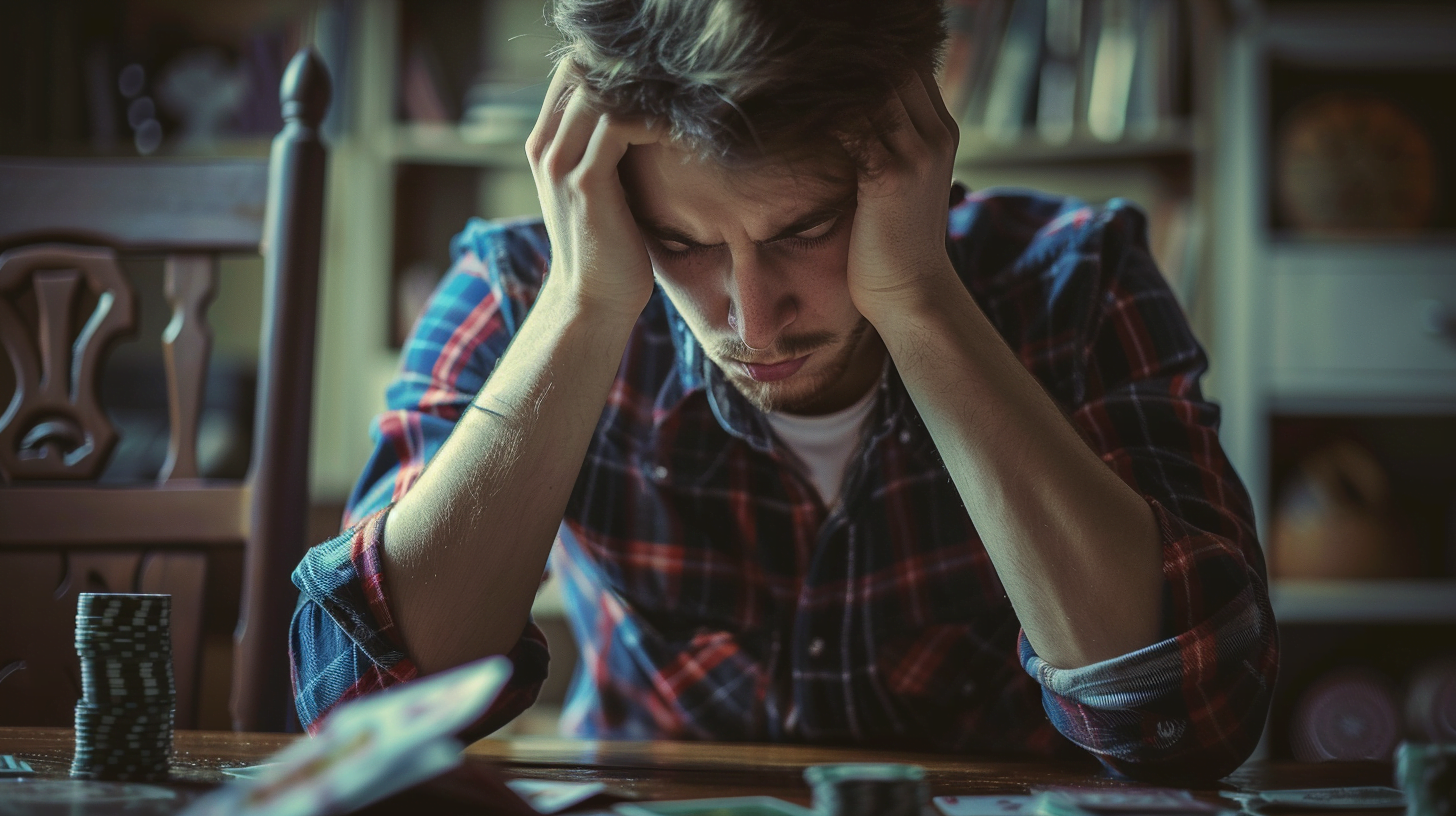Book Appointment Now
How Can I Deal with Bad Luck and Create My Own Fortune?
Feeling down on your luck? Discover practical strategies to overcome misfortune, change your mindset, and create your own good fortune. Learn how to deal with bad luck and turn adversity into opportunity!

Table of Contents
Life’s a rollercoaster, isn’t it? One minute you’re on top of the world, and the next, it feels like you can’t catch a break. If you’ve ever found yourself wondering, “How can I deal with bad luck?”, you’re not alone. We’ve all been there, feeling like the universe has it out for us. But here’s the thing: bad luck doesn’t have to define you. In fact, with the right mindset and strategies, you can turn those lemons into the sweetest lemonade you’ve ever tasted. Let’s dive into the world of misfortune and discover how to come out on top!
Understanding Bad Luck: More Than Just a Black Cat Crossing Your Path
Before we jump into dealing with bad luck, let’s get to the bottom of what it really is. Bad luck isn’t some mystical force that’s out to get you. It’s often just a series of unfortunate events that we perceive as being connected.
What exactly is bad luck? Simply put, it’s when things don’t go our way, often in a series of events that seem to be beyond our control. It’s that feeling when you oversleep, spill coffee on your shirt, and then get stuck in traffic – all on the day of an important meeting.
But here’s the kicker: a lot of what we call “bad luck” is really just our perception. Psychologists have found that we tend to remember negative events more vividly than positive ones. This phenomenon, known as negativity bias, can make us feel like we’re experiencing more bad luck than we actually are.
“Luck is what happens when preparation meets opportunity.” – Seneca
This quote reminds us that what we often call luck (good or bad) is often the result of our actions and how we respond to circumstances.
The Psychology of Perceiving Bad Luck
Our brains are wired to find patterns, even when they don’t exist. This can lead us to see a string of unrelated negative events as “bad luck.” Here’s a quick breakdown of how our minds can trick us:
- Confirmation Bias: We tend to notice things that confirm our existing beliefs. If you think you’re unlucky, you’re more likely to notice and remember events that support this belief.
- Selective Memory: We often forget about the times things went well and focus on the negative experiences.
- Attribution Error: We’re more likely to attribute our successes to skill and our failures to bad luck, rather than taking responsibility for both.
Understanding these psychological factors can help us reframe our experiences and deal with perceived bad luck more effectively.
Recognizing Signs of Bad Luck: Is It Really As Bad As You Think?
Now that we understand what bad luck is (and isn’t), let’s talk about how to recognize it. Remember, not every setback is a sign of bad luck. Sometimes, life just throws us curveballs to keep things interesting!
Common Experiences People Associate with Bad Luck
Here’s a list of situations that people often label as “bad luck”:
- Losing a job unexpectedly
- Experiencing a string of minor accidents or mishaps
- Having technology fail at crucial moments
- Missing out on opportunities by narrow margins
- Facing unexpected financial setbacks
While these situations can certainly feel unlucky, it’s important to look at them objectively. Are they truly random misfortunes, or could there be underlying factors at play?
Differentiating Between Genuine Misfortune and Self-Fulfilling Prophecies
Sometimes, our belief in bad luck can actually create more negative experiences. This is known as a self-fulfilling prophecy. For example, if you believe you’re unlucky in relationships, you might subconsciously sabotage potential connections.
To break this cycle, try keeping a “luck journal.” For a week, write down both positive and negative events that happen to you. You might be surprised to find that things aren’t as one-sided as they seem!

Strategies for Dealing with Bad Luck: Your Personal Toolkit for Success
Alright, now we’re getting to the good stuff! Here are some tried-and-true strategies for dealing with bad luck and turning your fortunes around.
1. Change Your Mindset: It’s All in Your Head (Really!)
The first step in dealing with bad luck is to shift your perspective. Here’s how:
- Adopt a Growth Mindset: Instead of seeing setbacks as proof of your bad luck, view them as opportunities to learn and grow.
- Practice Gratitude: Each day, write down three things you’re grateful for. This helps shift your focus from what’s going wrong to what’s going right.
- Reframe Negative Experiences: Ask yourself, “What can I learn from this?” or “How might this be a blessing in disguise?”
2. Take Action: Be the Captain of Your Own Ship
Don’t just sit back and let bad luck happen to you. Take control!
- Set Goals and Make Plans: Having clear objectives can help you navigate through tough times.
- Learn from Setbacks: Analyze what went wrong and how you can prevent similar situations in the future.
- Seek Opportunities in Adversity: Sometimes, what seems like bad luck can open doors to new possibilities.
3. Manage Your Emotions: Keep Calm and Carry On
Emotional resilience is key when dealing with bad luck. Here’s how to build it:
- Practice Mindfulness: Stay present and avoid catastrophizing about the future.
- Develop Emotional Resilience: Build your ability to bounce back from setbacks through regular self-care and positive self-talk.
- Seek Support: Don’t be afraid to lean on friends and family during tough times.
4. Take Practical Steps: Small Actions, Big Results
Sometimes, the best way to deal with bad luck is through simple, practical actions:
- Declutter Your Life: A tidy space can lead to a tidy mind.
- Create Positive Routines: Establish habits that set you up for success.
- Surround Yourself with Positive Influences: The people around you can have a big impact on your outlook.
Superstitions and Rituals: Do They Really Help?
Let’s talk about the elephant in the room – superstitions. From lucky socks to avoiding black cats, people have all sorts of rituals to ward off bad luck. But do they actually work?
| Superstition | Origin | Scientific Validity |
|---|---|---|
| Breaking a mirror brings 7 years of bad luck | Ancient Romans believed mirrors reflected the soul | None |
| Finding a four-leaf clover brings good luck | Celtic tradition | None, but searching for one can be a fun distraction |
| Knocking on wood prevents bad luck | Old pagan tradition | None, but it can provide psychological comfort |
While there’s no scientific evidence that these superstitions actually affect luck, they can have psychological benefits. Rituals can provide a sense of control and comfort in uncertain situations. Just don’t rely on them exclusively!
When Bad Luck Persists: Coping Strategies for the Long Haul
Sometimes, it feels like bad luck just won’t let up. When you’re in a prolonged period of misfortune, try these strategies:
- Seek Professional Help: A therapist can provide valuable tools for managing stress and changing negative thought patterns.
- Develop a Long-Term Resilience Plan: This might include regular exercise, meditation, and setting achievable goals.
- Learn to Accept and Adapt: Sometimes, the best way to deal with bad luck is to accept what you can’t change and focus on what you can control.
Remember, even the darkest night will end, and the sun will rise again. Hang in there!
Turning Bad Luck into Good Fortune: Success Stories to Inspire You
Need some inspiration? Here are a few examples of people who turned their bad luck around:
- J.K. Rowling: Before Harry Potter made her a household name, Rowling was a single mother living on welfare. She used her struggles as inspiration for her writing.
- Steve Jobs: After being fired from Apple, the company he co-founded, Jobs went on to create Pixar and later returned to make Apple one of the most valuable companies in the world.
- Oprah Winfrey: Despite a difficult childhood and early career setbacks, Winfrey became one of the most influential media personalities in the world.
These stories show that what seems like bad luck can often be the catalyst for incredible success.

Maintaining a Positive Outlook: Your Daily Dose of Optimism
Dealing with bad luck isn’t a one-time thing – it’s an ongoing process. Here are some daily practices to help you maintain a positive outlook:
- Start Your Day Right: Begin each morning with a positive affirmation or a quick meditation.
- Practice Random Acts of Kindness: Helping others can boost your own mood and create positive energy.
- Celebrate Small Victories: Acknowledge your achievements, no matter how small they might seem.
Remember, maintaining a positive outlook doesn’t mean ignoring negative emotions. It’s about finding balance and perspective.
Conclusion: Creating Your Own Luck
So, how can you deal with bad luck? The answer lies in changing your perspective, taking action, managing your emotions, and maintaining a positive outlook. Bad luck doesn’t have to define you – in fact, it can be the springboard that launches you to new heights.
Remember, luck is often what we make of it. By adopting these strategies and maintaining a resilient attitude, you’re not just dealing with bad luck – you’re creating your own good fortune.
Here’s to turning the tide and making your own luck. You’ve got this!



